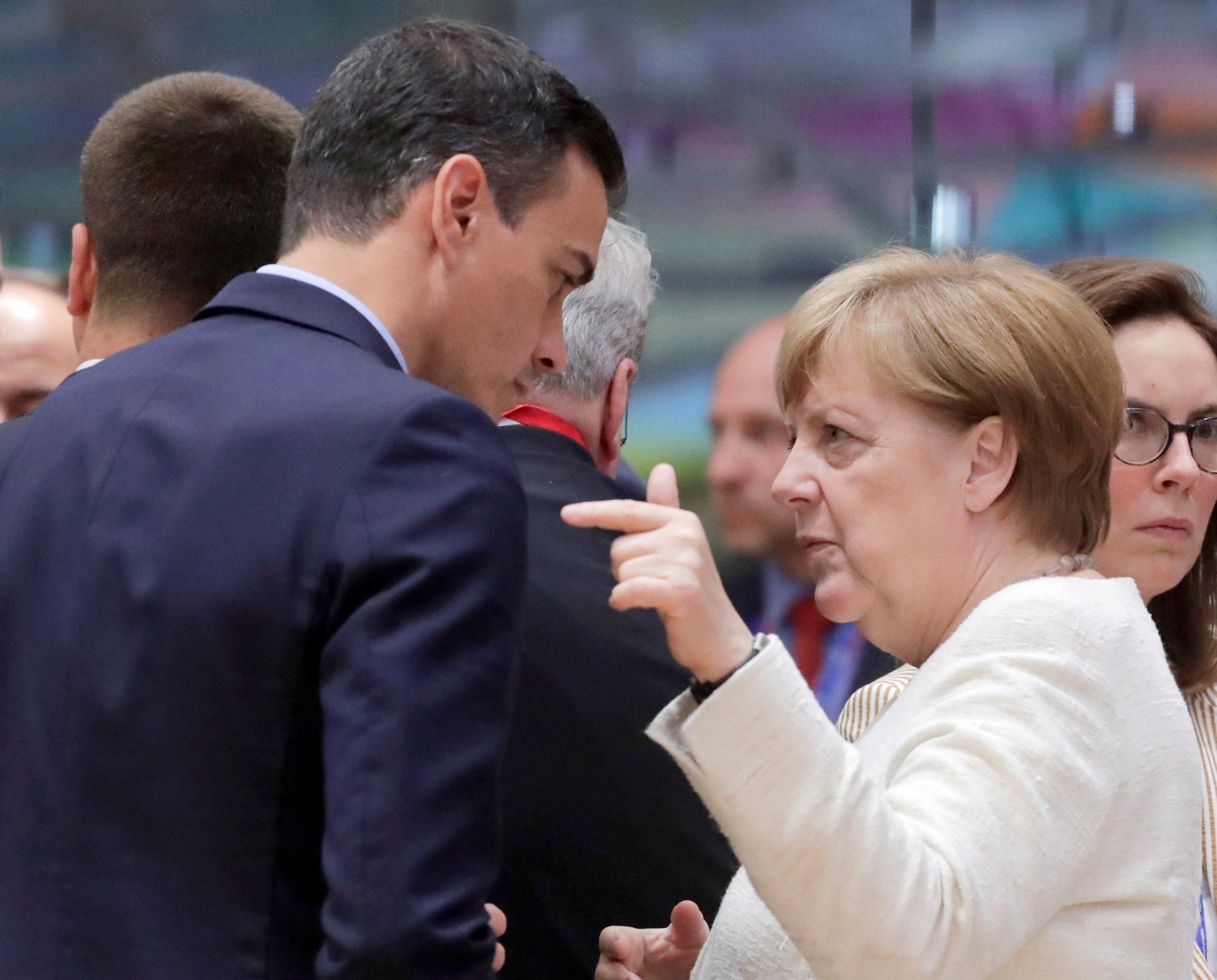German chancellor Angela Merkel has shown up Spanish prime minister Pedro Sánchez and announced that the northern European country's benefits for temporarily laid-off workers - Kurzarbeitergeld, in German - will be extended until the end of 2021 due to the coronavirus crisis. The Spanish government has limited itself to saying for now that it is considering extending its own furlough scheme (known by the acronym ERTO in Catalan, ERTE in Spanish) beyond September, but has not yet committed itself.
In Germany, on the other hand, the parties that make up the governing coalition, the CDU (Christian Democrats) and the SPD (Social Democrats), have reached agreement to extend the temporary unemployment system that was due to expire in March 2021, until the end of next year. Thus, Germany's two largest political families have joined forces to ensure that workers are economically protected at least until the elections scheduled for autumn 2021.
Angela Merkel's government expects the extension to cost 10 billion euros. The mechanism allows companies to reduce the working hours of employees, while the state takes care of between 60% and 87% of the worker’s salary.
"Right now it's about stabilizing the economy," German finance minister Olaf Scholz said in an interview with ZDF television on Wednesday. "Because we act quickly and comprehensively, Germany has overcome the crisis much better than other countries," he added.
Nochmal zusätzlich zehn Milliarden Euro - das könnte die beschlossene #Kurzarbeitergeld -Verlängerung kosten, sagt Finanzminister @OlafScholz im ZDF. Das Instrument habe auch im Zuge der Finanzkrise 2008/2009 schon geholfen. #Coronavirus https://t.co/LPMSshkjh6
— ZDF heute (@ZDFheute) August 26, 2020
Scholz noted that quite positive statistics are being recorded on the current state of the German economy. “Things are going better than was feared a few weeks ago,” he asserted.
For his part, the German employment minister Hubertus Heil, defended the extension of the Kurzarbeitergeld to radio broadcaster Deutschlandfunk station, considering that Germany is facing its deepest crisis for generations, warning that "it will not have ended on January 1st".
Germany's federal statistical office has reported that German public administrations recorded a deficit of 51.6 billion euros in the first six months of 2020 as a result of the impact of the coronavirus crisis. That is equivalent to a 3.2% fall in GDP, in contrast to the positive balance of 46.5 billion - a 2.7% GDP surplus - recorded in the first half of 2019.
And in Spain...
The Spanish government has just scheduled a meeting for this Friday with unions and employers to address the issue of what to do with its ERTOs, on which 3.3 million workers, or 15% of the country's workforce, were dependent during the first half of the year. Days before they were originally set to end, at the end of June, they were extended until the end of September.
Spanish GDP plunged by 22.7% in the first two quarters of 2020, equivalent to about 300 billion euros. Latest forecasts by the independent control fiscal body AIReF for the year as a whole, point to a fall in GDP of between 10.1% and 12.4% for the whole of 2020. This estimate could be affected negatively if recovery is hit badly by a new wave of coronavirus in the autumn.

